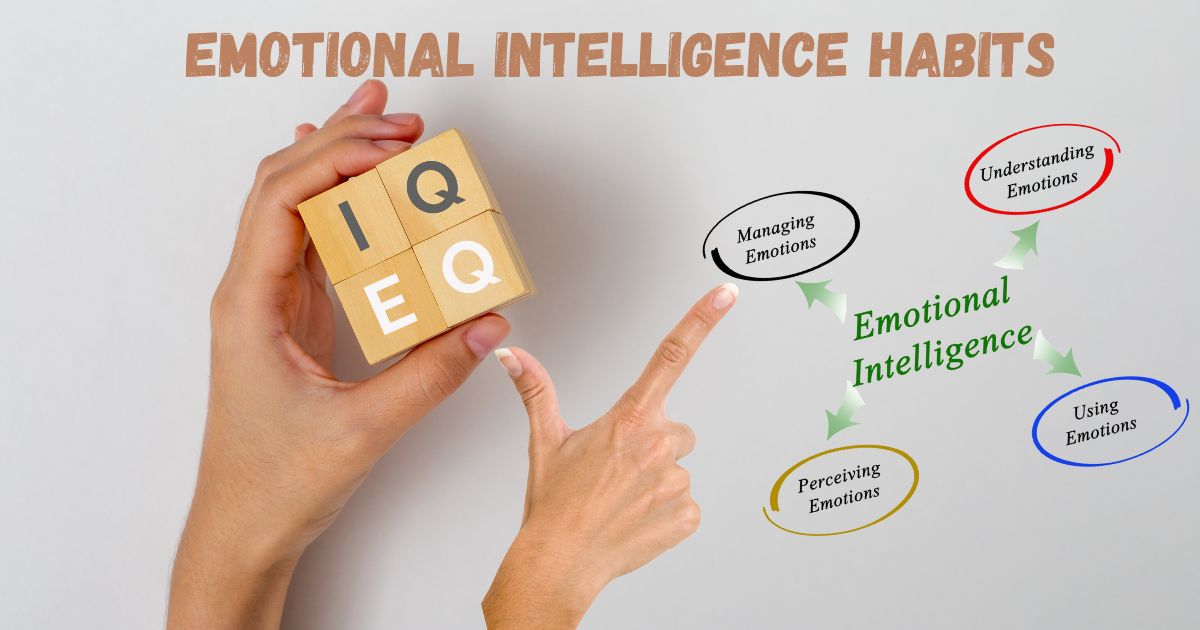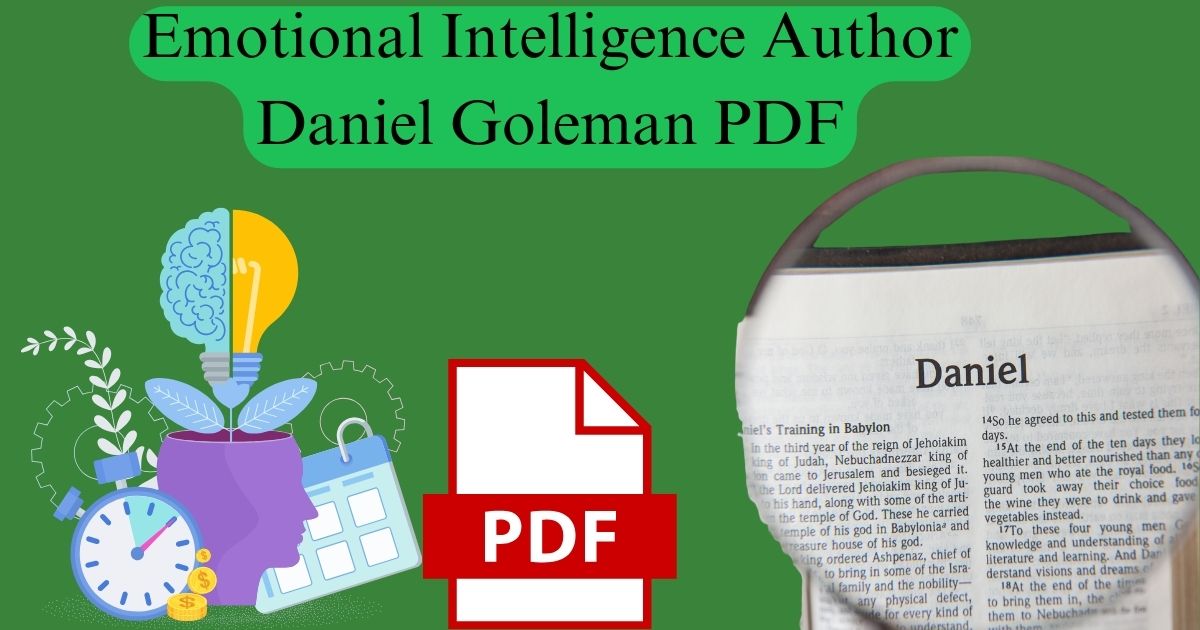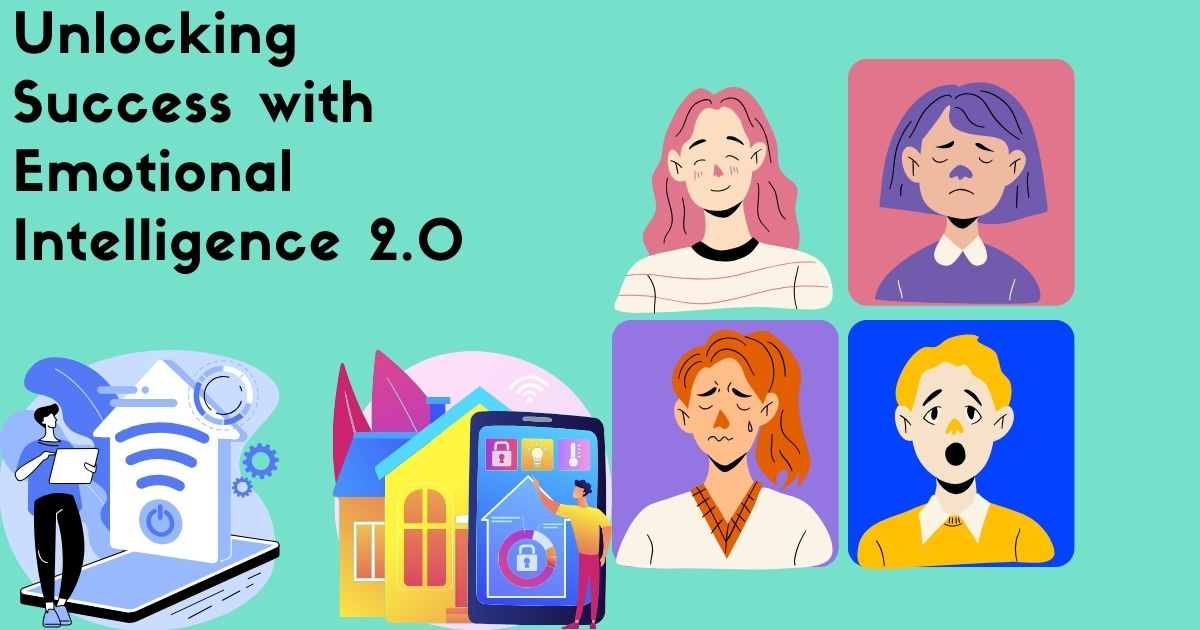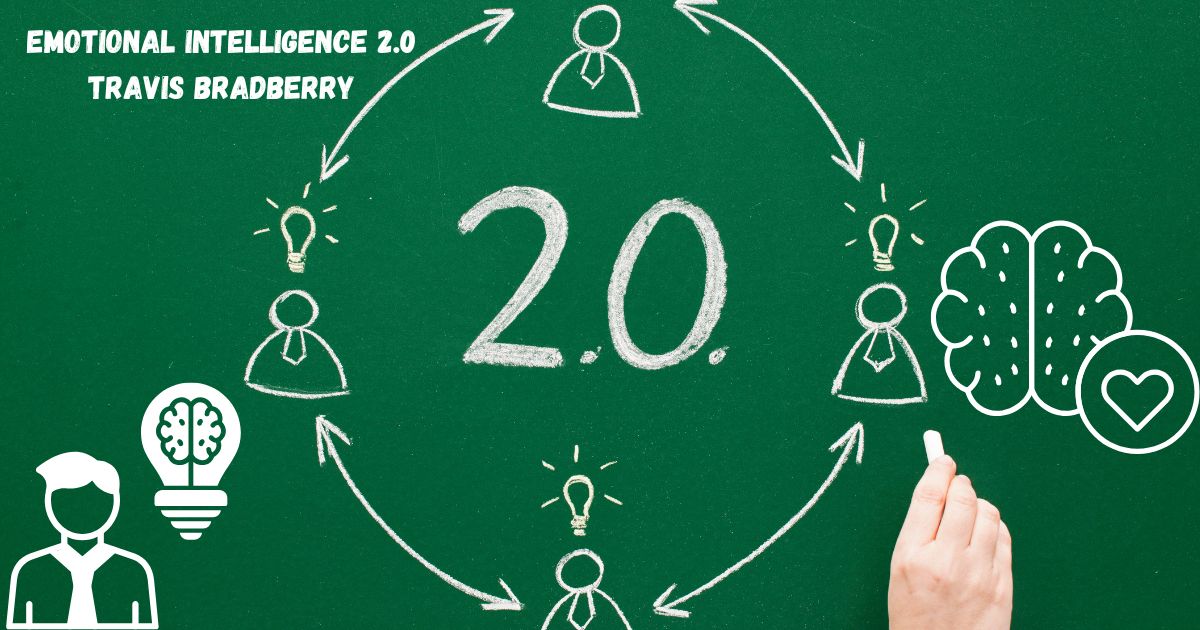Introduction:
Emotional Intelligence Habits: Key to Personal and Professional Success. In cutting-edge, fast-paced global, success isn’t always pretty much IQ or technical abilities; it’s also approximately emotional intelligence (EI). EI, frequently called EQ, is the capacity to apprehend and manipulate emotions correctly. It plays a vital role in diverse components of life, along with private relationships, place of job dynamics, and overall well-being. Cultivating emotional intelligence behavior can considerably decorate one’s high-quality of life and pave the way for achievement. In this article, we’re going to delve into the important EI habits which can rework the way you navigate through lifestyles.
Understanding Emotional Intelligence
Emotional Intelligence Habits: Key to Personal and Professional Success. Before diving into the behavior, lets in brief apprehend what emotional intelligence includes.
EQ accommodates 4 number one additives:
Self-awareness: Perceiving and figuring out one’s own emotions.
Successfully managing one’s sentiments and motivations.
Social attention: Sensing and information others’ feelings, as well as empathizing with the
Relationship management:Building and keeping wholesome relationships, as well as efficaciously communicating and resolving conflicts.
Now that we have a draw close of what emotional intelligence encompasses, let’s discover the habits which can help in its improvement.
Habits to Enhance Emotional Intelligence
Practice Self-reflection:
Take time to reflect on your feelings, thoughts, and behaviors. Journaling may be a powerful tool for self-mirrored image. Regularly investigate your strengths, weaknesses, and areas for improvement.
Develop Empathy:
Put yourself in others’ shoes and try to understand their perspectives and feelings. Listen actively without judgment and show genuine difficulty for others’ feelings.
Manage Stress Effectively:
Stress can impair emotional intelligence. Practice relaxation techniques along with deep respiration, meditation, or mindfulness to manipulate strain ranges successfully.
Communicate Clearly:
Effective verbal exchange is important for constructing and maintaining wholesome relationships. Practice active listening, express yourself definitely and assertively, and be open to feedback.
Cultivate Optimism:
Adopt a fine outlook on existence and cognizance on solutions as opposed to residing on troubles. Cultivate resilience through viewing setbacks as opportunities for boom.
Develop Emotional Regulation Skills:
Learn to recognize and modify your feelings efficaciously. Practice techniques including cognitive reappraisal, wherein you reframe terrible thoughts into greater, nice ones.
Build Social Skills:
Strengthen your interpersonal talents by means of undertaking sports that involve teamwork and collaboration. Practice empathy, conflict resolution, and powerful communication in social settings.
Seek Feedback and Learn from mistakes:
Emotional Intelligence Habits: Key to Personal and Professional Success. Solicit remarks from others to advantage insights into your strengths and regions for development. Be open to constructive grievance and examine errors as learning opportunities.
By incorporating this behavior into your daily existence, you could enhance your emotional intelligence and reap the subsequent blessings:
Improved Relationships: Better recognize and hook up with others, leading to stronger personal and professional relationships.
Enhanced Leadership Skills: Effective leaders possess high emotional intelligence, permitting them to inspire and inspire others.
Better Decision-making: Emotionally smart individuals make higher decisions by considering each rationality and feelings.
Reduced Stress and Anxiety: Improved emotional regulation talents assist in managing strain and selling normal nicely-being.
FAQs
Q: Can emotional intelligence be learned?
A: Yes, emotional intelligence is an ability that can be developed through exercise and self-attention. By cultivating conduct that beautify emotional intelligence, individuals can improve their EQ over time.
Q: How can I examine my emotional intelligence?
A :There are numerous tests and tools to be hard to measure emotional intelligence, together with the Emotional Intelligence Appraisal and the Mayer- Salovey- Caruso Emotional Intelligence Test( MSCEIT). Also, tone-imaged image and feedback from others can offer perceptively into bone’s EQ.
Q :Are there any downsides to having inordinate emotional intelligence?
A: While emotional intelligence is generally associated with superb issues, exorbitantly high degrees of empathy can sometimes affect in emotional prostration or collapse, in particular in aiding professions. It’s important to save a balance and practice tone-care.
Conclusion
Emotional Intelligence Habits: Key to Personal and Professional Success. In the end, emotional intelligence habits are instrumental in fostering private and professional achievement. By cultivating self-awareness, empathy, stress management, and effective communication talents, people can decorate their emotional intelligence and lead more enjoyable lives. Incorporate these conduct into your day by day recurring and witness the transformative electricity of emotional intelligence. Remember, it’s by no means too late to start developing your EQ and reaping the benefits it brings. Start today and embark on an adventure closer to more self-focus and achievement.




